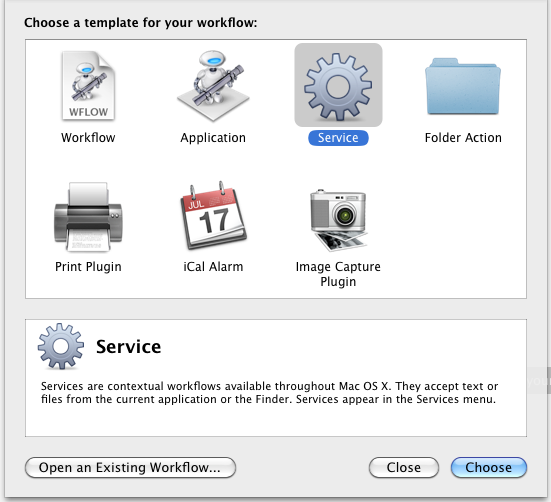
s changes the SOURCE location for the backup r changes the location of the RSYNC executable In Use: -aHEXAvx -delete -progress -stats -timeout=999 g changes the usage of the GROWL notifications f changes the FOLDER that contains the config files e changes the location of the EXCLUDE file d changes the DESTINATION location for the backup

The configuration file and folder can be specified using the -c and -f flags, respectively. Any variables from the configuration file can be overriden using the flags
#Mac os x shell script install#
Will install rsync if it is not already installed in /usr/local/bin and will set up the configurations folder with a default configuration file.Ĭalling backup without any flags will start a backup using the default configurations. To make the scriptĮxecutable, use the chmod command: sudo chmod +x backupĪfter downloading BackupUtility.zip, unzip the file and move the application to your Applications folder. To install the backup script, move the script to a directory in your $PATH, such as /usr/local/bin/.
#Mac os x shell script mac os x#
May want to try compiling it yourself from source or reverting back to the (most likely older) version already installed on your system (this can be done by changing the rsync location to /usr/bin/rsync).ĭownload: version 3.2.4 - Requires Mac OS X The included rsync binary should work, but if it doesn't you This includes the backup script and a precompiled version of rsync 3.0.6.
#Mac os x shell script download#
The second download includes the GUI version of the backup utility. Is usually an older version and you may want to download a newer version (this may require compiling it from source code). It does not include rsync but Mac OS X should have rsync already installed. The first is just the shell script wrapper for rsync. There are two files that you can download. The backup utility can use growl, if installed, to notify the user when the backup has started and finished.

This program was originally written to perform a backup of my laptop's internal hard drive to an external drive with the ability to "bless" the backup The mostĬonvenient feature of rsync is that after the first backup, it will only sync the files that have changed, greatly reducing the amount of time required to performĪ backup. Since it will sync all files from a source location to a destination directory while keeping most of their privileges and extended attributes intact. rsync is a great tool for performing backups This project started out as a simple shell script wrapper for rsync.


 0 kommentar(er)
0 kommentar(er)
